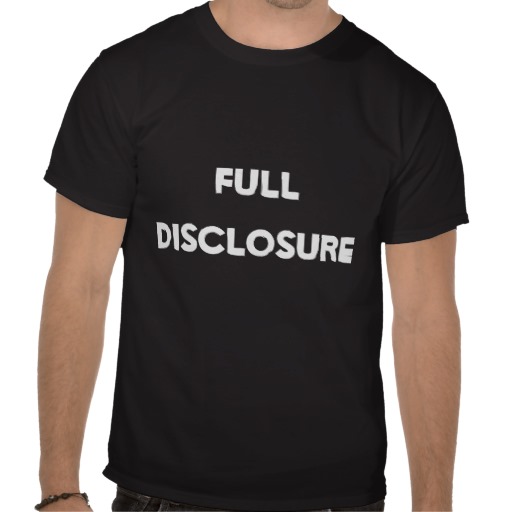 The recent fiasco around The Atlantic’s sponsored article in support of Scientology has highlighted something rather important: disclosing a conflict of interest does not exonerate a news source from poor quality control. A “sponsored content” label basically amounts to disclosure that the source was paid to post an advert in the guise of actual copy, and so this example provides ample evidence of why we as content consumers should not so readily accept the disclosure argument as a means of preserving journalistic integrity.
The recent fiasco around The Atlantic’s sponsored article in support of Scientology has highlighted something rather important: disclosing a conflict of interest does not exonerate a news source from poor quality control. A “sponsored content” label basically amounts to disclosure that the source was paid to post an advert in the guise of actual copy, and so this example provides ample evidence of why we as content consumers should not so readily accept the disclosure argument as a means of preserving journalistic integrity.
This all raises another important point. A disturbing trend has emerged in recent years whereby the tech media are posting conflicted content and taking on clearly biased writers while using the disclosure argument as a sort of back door out of accepting responsibility for such shoddy journalism. Let’s be clear– just because conflicts of interest are disclosed, does not mean that a publisher is somehow absolved from this sin.
It is very true that conflict of interest cannot be avoided altogether, but providing a platform for people like MG Siegler and Michael Arrington to make paid regular comment on issues of interest to them seriously compromises the journalistic integrity of TechCrunch. The involvement of both of these authors in the CrunchFund venture capital firm means they largely cannot write without bias on topics relevant to the tech industry. Disclosure does not mitigate this– it simply makes it apparent. They should be free to write whatever they want on their own personal blogs but being paid to write articles for a widely-consumed blog professing to have some degree of journalistic integrity? We should not so readily accept this.
I don’t mean to single out TechCrunch. Many other tech blogs are littered with embedded disclosure statements, post “sponsored content” or even include “disclosed” affiliate links in their posts, such as this example from The Next Web. Again, the disclosure of this fact doesn’t somehow elevate TNN out of the depths of journalistic depravity; it simply makes its lack of journalistic integrity more apparent. Of course, if it were to hide this fact this would be a greater sin still, but this doesn’t detract from the fact that TNN is getting paid to write articles about certain topics, and being paid specifically by those that stand to benefit most from the entailing publicity.
And now with this latest The Atlantic fiasco, it should be even more painfully apparent why we cannot simply accept content peppered with disclosures and assume that all is bona fide. Instead we should seek out news sources that genuinely provide a wide, fair and balanced spectrum of information, ones where disclosures of this sort are completely unnecessary.



 The other, of course, is the coming of Chrome OS. As Google Apps already acts as a sort of social and professional productivity platform, an operating system that supports and increasingly intregrates the products of the platform makes perfect sense, and yet will further indenture us to Google. Then, like the hive mind stretching its tentacles into the consciousnesses of all its Borg followers, so too will Google’s reach extend out to all of us via our mobile and desktop operating systems, with Search at its core.
The other, of course, is the coming of Chrome OS. As Google Apps already acts as a sort of social and professional productivity platform, an operating system that supports and increasingly intregrates the products of the platform makes perfect sense, and yet will further indenture us to Google. Then, like the hive mind stretching its tentacles into the consciousnesses of all its Borg followers, so too will Google’s reach extend out to all of us via our mobile and desktop operating systems, with Search at its core. 